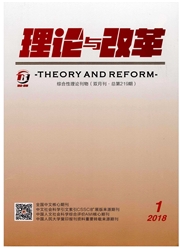

 中文摘要:
中文摘要:
用能权是在国家能源消费总量控制的大背景下,由国家初始分配和市场二次分配的以能源使用配额为主要内容的复合性财产利益。用能权的复杂性在于其兼具着国家管控的公法内核和财产利益的外在属性。一方面,用能权制度具有管控功能,是国家为实现能源消耗总量和强度的“双控”目标而对特定个体(用能单位)能源使用权设置的一把新锁;另一方面,用能权制度具有激励功能,应在行政许可范围内承认用能权的排他性、可交易性等财产性特征,以充分发挥市场配置能源要素的决定性作用。为此,需尽快出台相关立法,明确用能权的制度定位、初始分配规则、交易规则、定价机制等内容,并重点配套规定用能权制度与节能量交易制度、碳排放权交易制度的衔接问题,以最大限度地实现不同制度间的合力。
 英文摘要:
英文摘要:
Under the background of national energy consumption total quantity control, the use - energy right by national primary distribution and market' s secondary distribution, is compound property interests, of which the main content is energy use quota. The complexity lies in its combination with intrinsic attribute of state control on public law and extrinsic attribute of property interests. On one hand, system of use - energy - right has control function. In order to achieve the " double control" target for national energy consumption quantity and intensity, specific individuals' ( energy - using units' ) right of using energy has set a new lock. On the other hand, system of use - energy - right has incentive function. Within the scope of administrative licensing, in order to play the de- cisive role of market in energy elements allocation, property characteristics such as exclusiveness, tradability of use -energy -right should be acknowledged. Therefore, it is necessary to legislate as soon as possible to clarify posi- tions for system of use - energy - right, initial allocation rules, trading rules, pricing mechanisms and focus on sup- porting? stipulation used to connect system of use - energy - right, energy saving transaction and carbon emissions transaction system to maximize the synergy between different system.
 同期刊论文项目
同期刊论文项目
 同项目期刊论文
同项目期刊论文
 期刊信息
期刊信息
